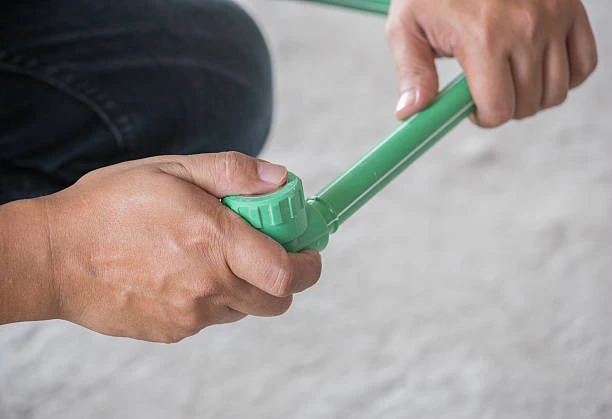Introduction PPR Pipe
Saudi Arabia’s rapidly growing infrastructure demands high-quality plumbing solutions, making it essential to have reliable manufacturers of pipes and fittings. Among these, PPR (Polypropylene Random Copolymer) pipes are becoming increasingly popular for their versatility, durability, and eco-friendliness. This article explores the role of a leading manufacturer in Saudi Arabia, focusing on PPR Pipe, alongside HDPE pipes, valves, and grooved fittings.
The Importance of PPR Pipe
PPR pipes are widely used in plumbing and industrial applications due to their numerous advantages. Understanding these benefits is crucial for industries and homeowners alike.
1. Durability and Longevity
PPR pipes are resistant to corrosion, rust, and chemical reactions, which makes them a long-lasting option for plumbing systems. Their lifespan can exceed 50 years, significantly reducing replacement costs.
2. Temperature Resistance
PPR pipes can withstand temperatures ranging from -40°C to 95°C. This temperature tolerance makes them ideal for both hot and cold water applications.
3. Lightweight and Easy to Handle
Compared to traditional materials, PPR pipes are lightweight, which simplifies transportation and installation. This ease of handling contributes to reduced labor costs during installation.
HDPE Pipes: Complementary Solutions
Alongside PPR pipes, HDPE (High-Density Polyethylene) pipes play a vital role in various applications, particularly in water distribution and drainage systems.
1. Flexibility and Strength
HDPE pipes offer exceptional flexibility, making them suitable for a wide range of environments, including areas with shifting soil. Their high strength-to-density ratio allows them to withstand high pressure and impact.
2. Corrosion Resistance
Like PPR, HDPE pipes are also resistant to corrosion, ensuring a long lifespan and reduced maintenance needs. They are ideal for transporting chemicals and potable water.
Valves: Control and Regulation
Valves are crucial components in any plumbing system. They regulate flow and pressure, ensuring that systems operate efficiently.
1. Types of Valves
Various valves, including ball valves and gate valves, are used in conjunction with PPR and HDPE pipes. These valves offer reliable performance, ensuring that water supply systems function smoothly.
2. Benefits of Using Quality Valves
Using high-quality valves from a reputable manufacturer ensures durability, leak prevention, and optimal control over water flow, enhancing the overall efficiency of plumbing systems.
Grooved Fittings: Versatile Connections
Grooved fittings are essential for creating flexible and secure connections between pipes. They are particularly useful in industrial applications where quick assembly and disassembly are necessary.
1. Ease of Installation
Grooved fittings allow for faster installation compared to traditional welded fittings. This efficiency can significantly reduce labor costs on large projects.
2. Adaptability
These fittings can accommodate different pipe materials and sizes, making them a versatile choice for various applications, from residential plumbing to industrial systems.

The Role of a Leading Manufacturer in Saudi Arabia
As a leading manufacturer in Saudi Arabia, the production of PPR pipes, HDPE pipes, valves, and grooved fittings requires strict adherence to quality standards and innovative practices.
1. Quality Assurance
Ensuring the highest quality of products is essential for maintaining customer trust. Rigorous testing and quality control measures must be implemented throughout the manufacturing process.
2. Innovative Technology
Investing in the latest technology and equipment enables manufacturers to produce high-quality pipes and fittings efficiently. Advanced machinery ensures precision in production, leading to better-performing products.
The Market for PPR Pipe in Saudi Arabia
The demand for PPR pipes in Saudi Arabia is on the rise, driven by several factors:
1. Infrastructure Development
With ongoing projects in housing, commercial buildings, and public infrastructure, the need for reliable plumbing solutions has never been greater. PPR pipes are favored for their cost-effectiveness and long-term performance.
2. Sustainability Focus
As environmental concerns grow, industries are increasingly looking for sustainable materials. PPR pipes are recyclable and have a lower environmental impact compared to traditional materials, making them an attractive option.
Challenges Faced by Manufacturers
While the demand for PPR pipes is growing, manufacturers also face challenges:
1. Raw Material Costs
Fluctuations in the prices of raw materials can affect production costs and, ultimately, pricing for consumers. Manufacturers must find ways to manage these costs without compromising quality.
2. Competition
The plumbing market in Saudi Arabia is competitive, with numerous manufacturers offering similar products. To stand out, manufacturers must focus on quality, innovation, and customer service.
Future Trends in PPR Pipe Manufacturing
The future of PPR pipe manufacturing looks promising, with several trends expected to shape the industry:
1. Technological Advancements
The integration of smart technology in plumbing systems is on the rise. Manufacturers may explore the development of smart PPR pipes that monitor water flow and detect leaks in real time.
2. Increased Customization
As consumer needs evolve, manufacturers will likely offer more customized solutions to meet specific requirements, including pipe sizes, colors, and fittings.
Conclusion PPR Pipe
As a leading manufacturer of PPR Pipe, HDPE pipes, valves, and grooved fittings in Saudi Arabia, it is essential to prioritize quality, innovation, and sustainability. PPR pipes, in particular, offer numerous advantages for both residential and industrial applications. By staying ahead of market trends and focusing on customer needs, manufacturers can ensure long-term success in the plumbing industry.
FAQs
- What are PPR Pipe made of?
- PPR pipes are made from polypropylene random copolymer, known for its durability and resistance to corrosion.
- What are the advantages of using PPR Pipe?
- PPR pipes are lightweight, resistant to temperature fluctuations, and have a long lifespan, making them ideal for hot and cold water applications.
- How do HDPE pipes differ from PPR Pipe?
- HDPE pipes are more flexible and have a higher strength-to-density ratio, making them suitable for different applications, especially in drainage systems.
- Why are valves important in plumbing systems?
- Valves regulate flow and pressure in plumbing systems, ensuring efficiency and control over water distribution.
- What are grooved fittings used for?
- Grooved fittings are used to create flexible connections between pipes, allowing for easy installation and adaptability in various plumbing systems.


















